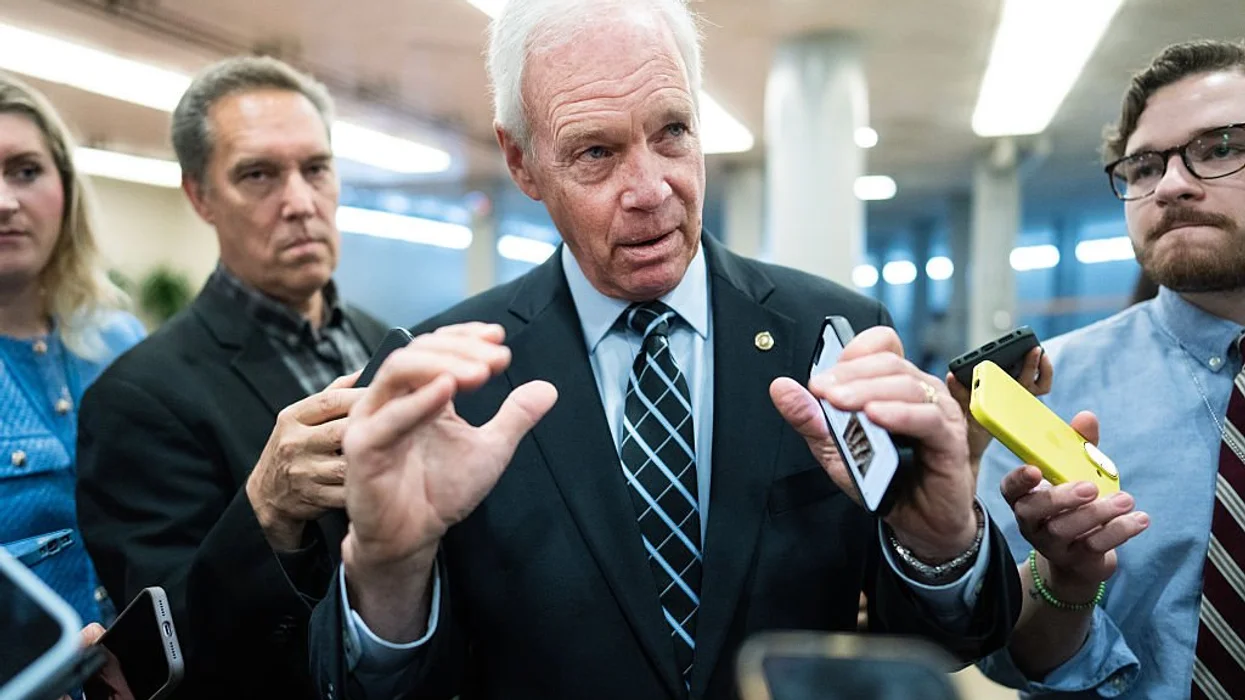
© 2025 Blaze Media LLC. All rights reserved.
Chinese General: Don't Worry, America, Our Military Doesn't Compare To Yours
May 19, 2011
"...China does not have the capability to challenge the United States."
 WASHINGTON (AP) -- Seeking to counter U.S. worries about his country's rapid military growth, a top Chinese general said Wednesday the communist nation's defense clout lags decades behind the U.S., and that China wants warmer relations.
WASHINGTON (AP) -- Seeking to counter U.S. worries about his country's rapid military growth, a top Chinese general said Wednesday the communist nation's defense clout lags decades behind the U.S., and that China wants warmer relations.
Gen. Chen Bingde, whose position in Beijing is roughly the equivalent of chairman of the U.S. Joint Chiefs of Staff, used a 45-minute speech at the National Defense University to play down fears of Chinese intentions.
"Although China's defense and military development has come a long way in recent years, a gaping gap between you and us remains," Chen said through a Chinese interpreter. He added, "China never intends to challenge the U.S."
Chen made a similar point later at a Pentagon news conference with his American counterpart, Navy Adm. Mike Mullen.
"I can tell you that China does not have the capability to challenge the United States," he said, adding that China's wealth and military strength pales in comparison with that of the United States. He said China's navy is 20 years behind the U.S. Navy.
Chen's remarks were in line with China's strategy of countering U.S. fear of China as a military threat by emphasizing the limited scope of its military reach and advancing efforts to cooperate in areas like counterterrorism and anti-piracy. Chen said he invited Mullen to make his first visit to China as Joint Chiefs chairman.
Chen and Mullen announced several agreements, including a plan for the U.S. and Chinese militaries to jointly conduct a humanitarian assistance and disaster relief exercise in 2012. They also agreed to use a special telephone link to maintain communication between their offices.
The general told reporters that China's recent boost of investment in military power is "compensatory in nature," making up for decades during which modernizing the Chinese economy was given the first priority. Washington often complains that China is too secretive about the purpose and exact scale of its military buildup.
To illustrate his point that China is not a threat - even to Taiwan - Chen noted that some Americans have called on China to remove or withdraw ballistic missiles positioned on its southeast coast, across from Taiwan.
"I can tell you here responsibly that we only have garrison deployment across (from) Taiwan, and we do not have operational deployment, much less missiles stationed there," Chen said.

In his speech at the National Defense University, Chen said he was optimistic about the future of U.S.-China military relations, which have suffered repeated setbacks. Early last year China angrily cut off most military-to-military contacts after the U.S. announced a $6.4 billion arms sale to Taiwan, the self-governing island that China considers a renegade province.
Under the 1979 Taiwan Relations Act, which partly defines U.S. relations with Taiwan and China, the Pentagon is obliged to provide Taiwan with sufficient defensive arms to ensure its security. In his remarks at the Pentagon, Chen said some U.S. lawmakers, whom he did not cite by name, had told him it is time for the Congress to review that law.
Chen said the U.S. needs to respect China's "core interests," which he said include issues of national unity like Taiwan. The Taiwanese, he said, are considered by all Chinese as "our compatriots and blood brothers and sisters."
The general equated China's position on Taiwan to President Abraham Lincoln's commitment to preserving the Union. Chen quoted Lincoln as saying, "The Union is unbroken."
Asked about Taiwan's long-standing request to purchase U.S. F-16 combat aircraft, Chen said such a sale would hurt U.S.-China military relations, but he was not specific. He asked rhetorically why Taiwan would need to buy American weapons if the U.S. sincerely believes its stated policy that Taiwan is part of China.
Chen appeared to question the validity of the U.S. position favoring Taiwan's eventual peaceful reunification with China. He recounted a conversation earlier Wednesday with Secretary of State Hillary Rodham Clinton in which she repeated the U.S. position that "there is only one China in the world and Taiwan is part of China."
He said he told Clinton: "I've heard that comment, that statement, since I was a schoolboy, and I'm hearing the same thing now I'm approaching my retirement age. I wonder when can I really see the reunification of my motherland."
Chen, chief of the general staff of the People's Liberation Army, is leading a delegation of eight Chinese generals on a weeklong visit to the United States. Also on the delegation's itinerary this week are the Army's Fort Stewart, Ga., the Navy's base at Norfolk, Va., and Nellis Air Force Base, Nev.
---
Robert Burns can be reached at https://twitter/robertburnsAP .
Want to leave a tip?
We answer to you. Help keep our content free of advertisers and big tech censorship by leaving a tip today.
Want to join the conversation?
Already a subscriber?
more stories
Sign up for the Blaze newsletter
By signing up, you agree to our Privacy Policy and Terms of Use, and agree to receive content that may sometimes include advertisements. You may opt out at any time.
Related Content
© 2025 Blaze Media LLC. All rights reserved.
Get the stories that matter most delivered directly to your inbox.
By signing up, you agree to our Privacy Policy and Terms of Use, and agree to receive content that may sometimes include advertisements. You may opt out at any time.





